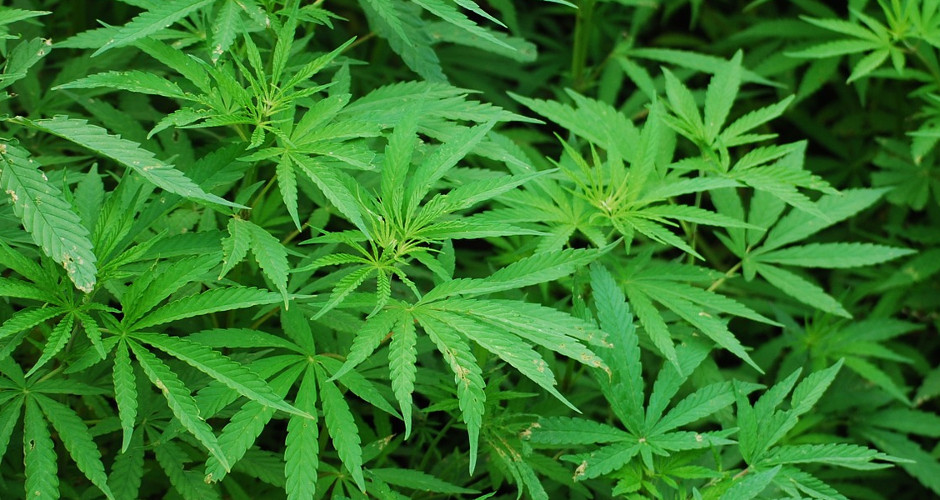One of many definitions of a “libertarian” is that they are a fiscal conservative and a social progressive. Historically libertarian political philosophy is predicated on the US Constitutional principles of reserving whenever possible political power to the people and the States as secured in our 9th and 10th Amendments in our Constitution—the so called “Federalist Amendments”.
Since 2014, the Furbisher-Far Amendment to all spending bills passed by Congress has made as a condition for implementation on Federal spending the limitation for prosecuting Federal Cannabis laws. Except for a brief time when Jeff Sessions tried to intervene and change the rule—subsequently overruled by the Trump administration—states have felt empowered to make moves to legalization and decriminalization of marijuana use and distribution.
As a conservative who believes in limited government, privacy, and free markets, I, like many everyday people, feel conflicted because drug addiction has had a deleterious and even destructive effect on my family. In another article, I will discuss the political and legal ramifications of legalization and decriminalization as well as the sociological impact on families and institutions.
What concerns me the most is that as arguments are being made by supporters of marijuana legalization and decriminalization, scientific facts are being set aside and even altered. Like with climate change (was there ever a time when the earth’s climate wasn’t changing?) science in this argument is being politicized. Never have I seen a discussion where the facts understood by practicing clinicians and researchers have been so different from what is being presented in the media.
As publically traded marijuana stocks are increasing in value and at the same time politicians see a new source of revenue to states and local governments, the truth about marijuana and its connection to mental health is seldom discussed. The science of pharmacology, epidemiology and clinical psychiatry about marijuana has been well known in the scientific world for at least 50 years. The ramifications for example that MJH is fat soluble instead of being water soluble like alcohol has tremendous ramifications regarding the short and long term affects that it has on behavior and neurocognitive functions.
Recent articles in the Washington Post have opined that THC is a powerful pain killer and can obviate the need for narcotics. Nothing could be further from the truth. Same with it is a powerful antiemetic effect—nausea. There are other over the counter drugs that have proven to be more powerful including ibuprofen for pain. Remember when evaluating human studies where the end point of the study is subjective, there is a 30% placebo effect in control populations-which is almost the same percentage of patients expressing relief from pain and nausea in the THC control groups.
The most important scientific finding about THC use was reported by the National Academy of Medicine in 2017 when in concluded that “THC use is very likely to increase the risk of schizophrenia and other psychosis—the greater the use the greater the risk.”
Unlike with alcohol after prohibition when overall intake of alcohol increased amongst all consumers, with cannabis overall use has increased minimally—10-15% higher nationwide in States that legalized use, but heavy consumption has exploded. In 2000 3million people reported using MJH use greater than 300 times a year. By 2017 that numbered had tripled. The United States does not have a MJH registry, but Finland and Denmark do and they have shown a significant increase in MJH psychosis over the past 20 years, and for the 1st time in our country and ongoing Federal study showed similar results. Advocates including civil libertarians do not like to discuss the linkage between schizophrenia and crime but it is irrefutable.
In young people, chronic MJH use is still rare, but it is increasing at about the same rate as schizophrenia and about the same rate as the increase in violent crimes in that age group. In studies in the Schizophrenia Bulletin, 27% of people with schizophrenia had been diagnosed with MJH Disorder. There is incontrovertible evidence for the connection between MJH use at all age levels—paranoia—schizophrenia, and violence. So to think that the issues of legalization and decriminalization of MJH use have only political and legal ramifications is wrong. There will be a significant cost to society and these costs are being marginalized in the name of libertarian principles.
In fact one could argue that MJH use does not empower the individual, but in a significant number of cases creates a state of dependency and enslavement—something not anticipated by most libertarian arguments.
I grew up in Ohio that is now experiencing a huge epidemic in opioid and MJH use. Families are being destroyed. Education and upward mobility opportunities for young people are lost. Job opportunities in many industries will not be available to prospective employees.
Will legalization and decriminalization make us better people and make us a more productive society? Will they increase or decrease our dependency on government. These are questions that should be considered as theoretical arguments of sovereignty and federalism are bantered about.
I personally believe that the Federal government should have no role in policing drug or ETOH policy. I think the States should carefully consider the long term cost of “liberalization”.


